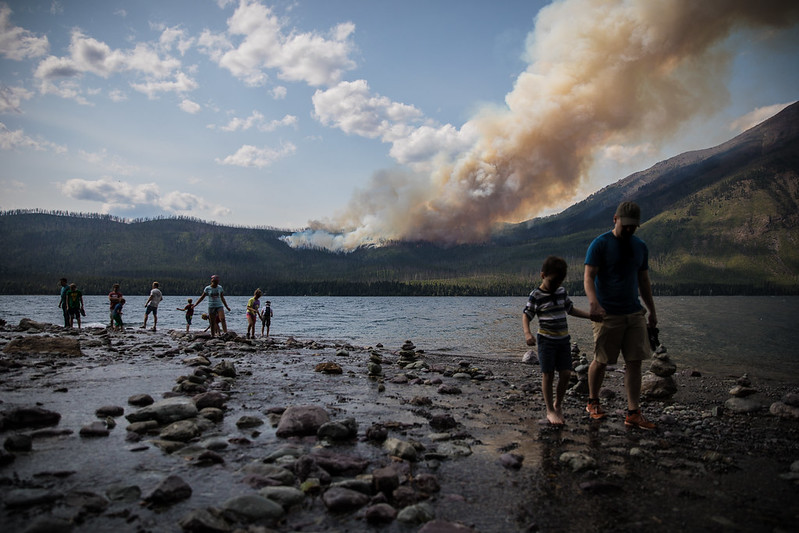Climate Change and Air Quality

Credit: NPS
The purpose of Air Quality Awareness Week is to bring attention to air pollutants that damage human health and environmental health.
Background
Many air quality and climate change concerns share a common cause. Fossil fuel burning quickly creates air pollution like ozone and particulate matter, and decades of widespread fossil fuel burning have caused the buildup of greenhouse gases in the atmosphere which raises global temperatures. Climate change—disruptions in historical patterns of temperature, precipitation, and seasonal timing— is already noticeable across many of America’s public lands.
Air does not respect political or geographic boundaries; while most pollution has a local source, wind and weather can carry pollution to distant places. The effects of air pollution, like the effects of climate change, can fall most heavily upon people and natural systems not directly responsible for the pollution. Air pollution can increase the stress of living things already dealing with high temperatures, drought, habitat loss, or other stresses.
Cleaner air means increased resiliency for all living things.
Resiliency is the ability of a person, a living thing, or an ecosystem to return to a healthy condition after experiencing a stress or crisis. A person may recover more slowly from an asthma attack on a hot summer day with high ozone levels. Lichens in a forest may die out if temperature rises or air pollution increases. In these examples, cleaner air could mean fewer doctor visits for the person with asthma, even if climate change has increased summer temperatures where they live. Cleaner air could also mean a richer variety of lichens to provide food, nesting materials, and habitat for wildlife in a forest warming from climate change.
We want to encourage people to take action. Air quality and climate change reflect choices we make in our daily lives. There are many ways that we can act as individuals, communities, and nations to improve air quality and solve the climate crises.
Climate change and air quality resources to share:
Looking for some basic information on the links between air quality and climate change? NASA has a quiz for you: https://climate.nasa.gov/quizzes/air-we-breathe-quiz/
What can a single person do to clean the air and fight climate change? The NPS has some suggestions: https://www.nps.gov/subjects/air/home.htm
Many conservationists use predictions of climate change in their planning. The National Climate Assessment has authoritative information on what different regions are already experiencing and can expect in the future: https://nca2018.globalchange.gov/chapter/front-matter-guide/
The Fish & Wildlife Service has a web page on how climate change affects their conservation efforts: https://www.fws.gov/story/climate-change-impacts
Suggested Social Media Post:
Climate change requires us to consider the past, present, and future of the environment. Take a trip in NASA’s Climate Change Machine for a sense of how the environment is changing: https://climate.nasa.gov/interactives/climate-time-machine/
